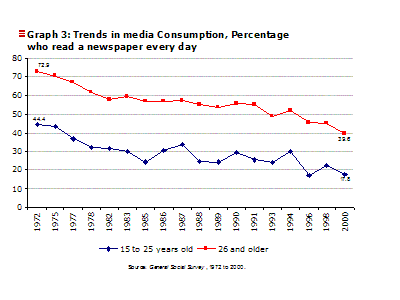During the summer of 2008, CIRCLE will move to Tufts University, becoming part of the Jonathan M. Tisch College of Citizenship and Public Service. My family and I will be moving to the Boston area as well. CIRCLE will leave a satellite office in the DC area, but our home will be Tufts. Working with colleagues there and partners at other institutions, CIRCLE will help to build an innovative, ambitious, and rigorous research program that will influence scholarship and practice and thereby help to renew democracy. I have written more about our agenda here (pdf).
This decision was basically an institutional one. If we had a formal board, they would have voted (I am confident) in favor of a move to Tufts. The University of Maryland is a great land-grant state institution. But Tufts, because of its resources, its people, and its tremendous institutional commitment to civic engagement, will give CIRCLE better opportunities to grow and affect the world.
But even if the choice was pretty obvious for CIRCLE, it was a difficult one for my family and for me, personally. I’ve had a terrific time and learned almost everything I know at the University of Maryland since 1993. I had to think seriously about my own identity and trajectory in order to decide which institution to commit to. At Maryland, I wear several hats, including a research scholar in the Institute for Philosophy & Public Policy, which applies philosophical ideas to a range of public issues. That work matters to me; but faced with a choice, I’ve decided it’s not my identity. I would like to say that I’m a scholar with normative concerns who interacts daily with the practical movement to enhance the quality and breadth of civic participation in America.
Already during the summer after my sophomore year in college, I went to the Kettering Foundation in Dayton (of which I am now a Trustee) to study the National Issues Forums. I must have won that internship based on an application essay that indicated some interest in public deliberation. I then became president of the Yale student government on a platform of increasing the quality and quantity of student engagement in New Haven and Yale. Although it wasn’t my idea, I’m proudest of one successful and lasting policy change that we achieved in that era: a scholarship program for students who conduct summer internships and report their results to local alumni clubs.
I was a philosophy major and received a doctorate in Philosophy from Oxford, but I might not have followed that route if I hadn’t received a Rhodes Scholarship. Winning the Rhodes was, of course, mostly a matter of luck; but my application was all about civic engagement. My first job after graduate school was with Common Cause, the citizens’ lobby. On the strength of that practical experience plus my doctorate, the Institute for Philosophy & Public Policy decided to hire me. And the Institute turned out to be a fabulous platform for conducting research and experimenting with practice in civic engagement. It was the base of the National Commission on Civic Renewal, the National Alliance for Civic Engagement, the Center for Information & Research on Civic Learning & Engagement (CIRCLE), the Prince George’s Information Commons, and numerous other projects. Only because of the institutional and personal resources available to me at Maryland have I been able to find a place in strategic national discussions about civic renewal.
Tufts is committed to precisely this role of generating rigorous and independent scholarship on civic engagement, in dialog with practice and political reform. It might be possible to sustain that work at Maryland, but I believe the odds are better at Tufts that we can expand the seriousness, originality, and rigor of our scholarship and its impact on society.

